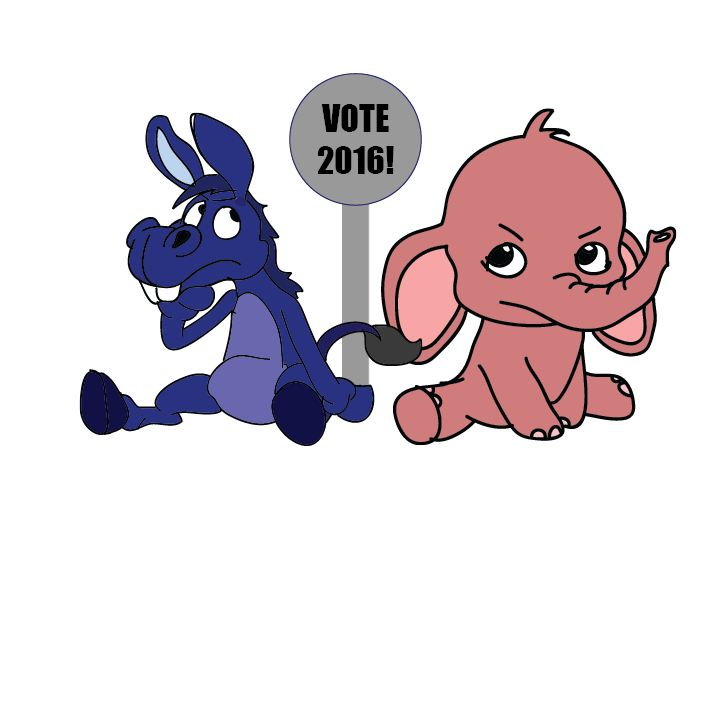Meianderings: The problem with cynicism in politics
The day Hillary Clinton released a video announcing her intent to run for president, the internet exploded in a flurry of speculation and critique. So I bit; I watched the two minute 15 second video of “average Americans” and Hillary Clinton announcing her plans for 2015, then promptly clicked through several articles dissecting every one of those 135 seconds.
In the half hour I spent reading, I learned several things: that Hillary Clinton hasn’t driven a car since 1996, that this video is a clear departure from her 2008 Hillary-dominated announcement, that she’s trying to give the impression of a campaign focused on the people, not herself. Each article turned a piercing eye to the videos’ content and speculated on the strategic motivations Clinton’s campaign managers must have used when making the video.
The same cynicism pervaded the comments on the video. Some watchers sardonically commented that the “average Americans” featured in the video were like a checklist of minority groups. Others questioned the point of voting in a supposedly broken political system. And I began to wonder if anyone took politics at face value anymore.
Americans love to bemoan the nature of politics: how it’s a cyclical rat race, how politicians are silver-tongued businessmen and women. While those things are often true, much of the problem stems from the cynical mindset with which people, especially young people, view politics. For all my reading about Hillary Clinton, I didn’t find a single article detailing her policies and how they compare with those of other presidential candidates.
There is nothing wrong with acknowledging that the campaign machine is a strategic entity and promotional material is specifically tailored and targeted to different audiences. But it is remiss to focus on the mechanics of a campaign to the point that they overshadow his or her actual policies.
A chilling real-world consequence to this kind of widespread cynicism is the wide swaths of young voters, like the commenters on Clinton’s announcement video, who have become too apathetic to bother voting. Desensitized by years of political navel-gazing, students and people in their early 20s stay home on election day, either because they don’t think their vote will make a difference or because they’ve lost trust in the government to the point that they think voting doesn’t matter.
Imagine all the changes that might come about if young adults voted in large numbers. Proposition 8 may not have passed in California. Marijuana maybe legalized in more states. Perhaps there would be more initiatives to stop climate change.
I’ll be missing the next presidential election by three months, but frankly, I don’t care that Hillary Clinton is campaigning via bus to seem more down to earth. I’d rather know her policies, her platform or even her past experience. Maybe then people like me would have more reason to vote next November.
This piece was originally published in the pages of The Winged Post on April 22, 2015.

Meilan Steimle (12) is co-Editor-in-Chief of the Winged Post. She was a reporter her freshman year, Winged Post Opinion Editor her sophomore year and Winged...


















![“[Building nerf blasters] became this outlet of creativity for me that hasn't been matched by anything else. The process [of] making a build complete to your desire is such a painstakingly difficult process, but I've had to learn from [the skills needed from] soldering to proper painting. There's so many different options for everything, if you think about it, it exists. The best part is [that] if it doesn't exist, you can build it yourself," Ishaan Parate said.](https://harkeraquila.com/wp-content/uploads/2022/08/DSC_8149-900x604.jpg)




![“When I came into high school, I was ready to be a follower. But DECA was a game changer for me. It helped me overcome my fear of public speaking, and it's played such a major role in who I've become today. To be able to successfully lead a chapter of 150 students, an officer team and be one of the upperclassmen I once really admired is something I'm [really] proud of,” Anvitha Tummala ('21) said.](https://harkeraquila.com/wp-content/uploads/2021/07/Screen-Shot-2021-07-25-at-9.50.05-AM-900x594.png)







![“I think getting up in the morning and having a sense of purpose [is exciting]. I think without a certain amount of drive, life is kind of obsolete and mundane, and I think having that every single day is what makes each day unique and kind of makes life exciting,” Neymika Jain (12) said.](https://harkeraquila.com/wp-content/uploads/2017/06/Screen-Shot-2017-06-03-at-4.54.16-PM.png)








![“My slogan is ‘slow feet, don’t eat, and I’m hungry.’ You need to run fast to get where you are–you aren't going to get those championships if you aren't fast,” Angel Cervantes (12) said. “I want to do well in school on my tests and in track and win championships for my team. I live by that, [and] I can do that anywhere: in the classroom or on the field.”](https://harkeraquila.com/wp-content/uploads/2018/06/DSC5146-900x601.jpg)
![“[Volleyball has] taught me how to fall correctly, and another thing it taught is that you don’t have to be the best at something to be good at it. If you just hit the ball in a smart way, then it still scores points and you’re good at it. You could be a background player and still make a much bigger impact on the team than you would think,” Anya Gert (’20) said.](https://harkeraquila.com/wp-content/uploads/2020/06/AnnaGert_JinTuan_HoHPhotoEdited-600x900.jpeg)

![“I'm not nearly there yet, but [my confidence has] definitely been getting better since I was pretty shy and timid coming into Harker my freshman year. I know that there's a lot of people that are really confident in what they do, and I really admire them. Everyone's so driven and that has really pushed me to kind of try to find my own place in high school and be more confident,” Alyssa Huang (’20) said.](https://harkeraquila.com/wp-content/uploads/2020/06/AlyssaHuang_EmilyChen_HoHPhoto-900x749.jpeg)



